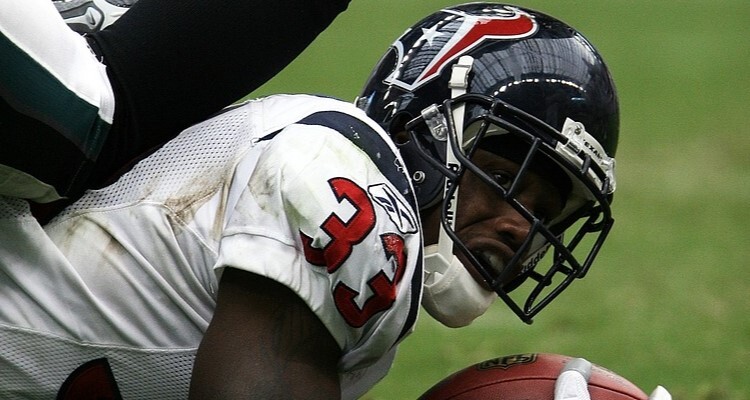
In the intricate landscape of cognitive biases, one phenomenon that significantly influences our perception of information is disconfirmation bias. This cognitive bias, rooted in our tendency to prefer information that confirms our existing beliefs while avoiding or discrediting contradictory evidence, plays a crucial role in shaping our decision-making processes. In this blog post, we delve into the nuances of disconfirmation bias, exploring its origins, manifestations, and the impact it has on our understanding of the world.
Disconfirmation bias, also known as confirmation bias, is a pervasive cognitive tendency wherein individuals seek out information that validates their pre-existing beliefs or opinions. Conversely, they tend to downplay, ignore, or dismiss information that contradicts these beliefs. This bias can operate at both conscious and subconscious levels, influencing our judgments and decision-making in various aspects of life.
To comprehend the roots of disconfirmation bias, it's essential to consider its potential evolutionary origins. Psychologists suggest that our ancestors may have developed a preference for information that aligned with their existing knowledge to enhance survival instincts. In the modern world, however, this bias can hinder objective reasoning and lead to distorted perspectives.
Disconfirmation bias manifests in diverse areas of our lives, from personal relationships and political affiliations to consumer choices and health-related decisions. People may selectively expose themselves to media outlets that align with their views, engage in confirmation-seeking conversations, or interpret ambiguous information in a way that supports their existing beliefs.
Several cognitive mechanisms contribute to the prevalence of disconfirmation bias, including selective exposure, interpretation, and retention. Individuals actively seek information that reinforces their beliefs, interpret ambiguous information in a way that confirms their preconceptions, and remember information that supports their existing views.
Disconfirmation bias can have significant implications for decision-making processes. In professional settings, it might lead to flawed strategic planning or hinder innovation by rejecting alternative perspectives. In personal relationships, it can contribute to misunderstandings and reinforce echo chambers within social circles.
Recognizing and addressing disconfirmation bias is crucial for fostering critical thinking and open-mindedness. Strategies such as actively seeking out diverse perspectives, promoting a culture of constructive debate, and being aware of one's own biases can help mitigate the impact of disconfirmation bias.
References:
Nickerson, R. S. (1998). Confirmation bias: A ubiquitous phenomenon in many guises. Review of General Psychology, 2(2), 175–220.
Klayman, J., & Ha, Y. W. (1987). Confirmation, disconfirmation, and information in hypothesis testing. Psychological Review, 94(2), 211–228.
Stanovich, K. E., & West, R. F. (2008). On the relative independence of thinking biases and cognitive ability. Journal of Personality and Social Psychology, 94(4), 672–695.
Lord, C. G., Ross, L., & Lepper, M. R. (1979). Biased assimilation and attitude polarization: The effects of prior theories on subsequently considered evidence. Journal of Personality and Social Psychology, 37(11), 2098–2109.
Disconfirmation bias, though deeply ingrained in human cognition, is not an insurmountable obstacle. By understanding its mechanisms and actively working to counteract its effects, individuals can cultivate a more open-minded and rational approach to information processing. As we navigate the complex web of cognitive biases, unraveling the threads of disconfirmation bias becomes a crucial step towards fostering a more nuanced and informed worldview.
In the high-stakes arena of sports, the influence of cognitive biases, including disconfirmation bias, can significantly impact an athlete's performance, decision-making, and overall experience. This blog explores the implications of disconfirmation bias in the world of athletics, shedding light on how this cognitive phenomenon can shape athletes' perceptions, training strategies, and interactions with teammates and coaches.
Disconfirmation bias in sports manifests when athletes favor information that confirms their existing beliefs about their abilities, training methods, or performance expectations. This bias may lead athletes to overlook areas for improvement, resist feedback that challenges their preconceptions, and limit their overall growth.
One significant implication of disconfirmation bias in athletics is its impact on performance evaluation and feedback. Athletes may be more receptive to feedback that aligns with their self-perceived strengths, while dismissing or downplaying critiques that challenge their established notions. This can hinder their ability to identify and address weaknesses constructively.
Athletes guided by disconfirmation bias may be inclined to stick to familiar training methods that validate their current skill set. Embracing new techniques or adapting to innovative training approaches might be met with resistance if they contradict the athlete's pre-existing beliefs. This reluctance to change can limit an athlete's potential for growth and improvement.
Disconfirmation bias is not limited to individual athletes; it can also permeate team dynamics. Athletes may selectively engage with teammates who share similar views, creating echo chambers within the team. Effective communication and collaboration may suffer when differing opinions or strategies are dismissed without consideration.
The bias can affect an athlete's mental resilience and coping mechanisms, particularly in the face of setbacks or challenges. Athletes who struggle to reconcile unexpected outcomes with their preconceived notions may experience heightened frustration, stress, or diminished self-esteem.
Recognizing and addressing disconfirmation bias is crucial for athletes striving for continuous improvement. Coaches, trainers, and athletes themselves can implement strategies such as diverse feedback sources, embracing a growth mindset, and fostering a culture of open communication within the team.
References:
Dweck, C. S. (2006). Mindset: The new psychology of success. Random House.
Kahneman, D. (2011). Thinking, fast and slow. Farrar, Straus and Giroux.
Cianciolo, A. T., & Sternberg, R. J. (2004). Intelligence: A brief history. Blackwell Publishing.
Gigerenzer, G. (2015). Simply rational: Decision making in the real world. Oxford University Press.
Image by Keith Johnston from Pixabay
